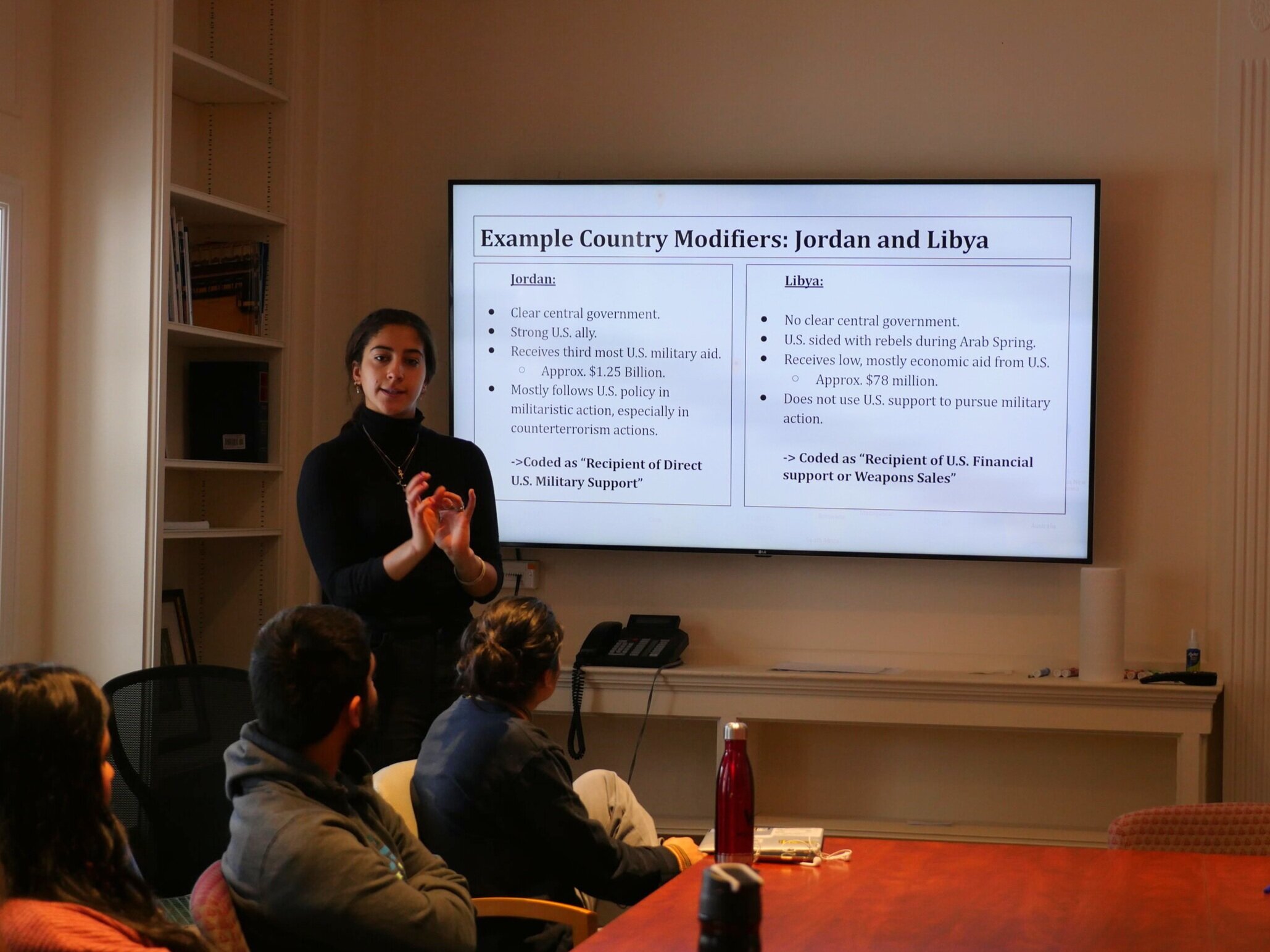Pilot Program with Wesleyan University
Jointly with Wesleyan University, the University Network for Human Rights launched a first-of-its-kind program during the 2019-2020 academic year to train undergraduate students in human rights defense and promotion. The Pilot Program engaged undergraduates in all of the University Network’s educational programs — seminars, training modules, simulations, and supervised human rights work — within a single academic year.
You can read news coverage of the pilot program here.
Wesleyan Pilot Program
Fall 2019: Classroom instruction in human rights advocacy
Mahey Gheis ‘22 presents her research on US military involvement in the MENA region
Students first enrolled in Professor Cavallaro’s Human Rights Advocacy Seminar. This seminar provided its participants with foundational instruction on the growth and evolution of the global human rights movement while introducing students to the practice of human rights fact-finding, documentation, and advocacy. As the semester progressed, students began work on some of the University Network’s ongoing advocacy projects, including research for experts on the UN Subcommittee for the Prevention of Torture and an look into human rights violations inside the “Big Ag” industry.
December 2019: Practical training in human rights advocacy
In December, students traveled to Puerto Rico to participate in an immersive, week-long simulation exercise in partnership with the Universidad Interamericana de Puerto Rico. In this simulation, students played the roles of human rights researchers tasked with documenting a fictitious human rights crisis. Over fifty actors played the roles of translators, villagers, rebels, police, government officials, activists, and technical experts. Additionally, students participated in mock media and advocacy exercises. At each step in this process, students received detailed, individualized feedback on their performance.
January 2020: Engagement in real-world human rights practice: fact-finding & documentation at the site of rights abuse
Program participants meet with Janice Areno (center), resident of Bayou d’Inde, to learn about the impact of the petrochemical industry on residents in nearby regions.
Under the supervision of University Network staff, program students traveled to a site of human rights abuse in Louisiana to engage in real-world fact-finding and documentation. Prior to the trip, students completed additional research and training to further develop the skills gained during December’s simulation exercise. Once on-site, students interviewed directly-affected community members, government officials, corporate executives, and more. University Network staff guided students as they engaged in: data collection; video documentation; public records research; quantitative analysis; photography; GIS analysis; and more. Supervisors also led debriefing sessions designed to encourage students to reflect on the ethics of working with directly affected communities as outside advocates.
Spring 2020: Engagement in real-world human rights practice: designing & implementing an advocacy strategy
Students participate in an advocacy strategy workshop as part of the Advanced Human Rights Advocacy course.
Over the course of the spring semester and under the close supervision of University Network staff, Wesleyan undergraduates received academic credit to produce advocacy outputs (reports, op-eds or other short-form pieces, videos, etc.) and design an advocacy/roll-out strategy in conjunction with our community partners. In their course, Advanced Human Rights Advocacy, students also learned valuable advanced advocacy skills through practical training modules led by University Network staff. Their practical work was supplemented by an in-depth look at human rights law, norms, and mechanisms. By the end of the semester, participating students had achieved a first-hand understanding of human rights practice and have completed a significant portion of real human rights advocacy project.



